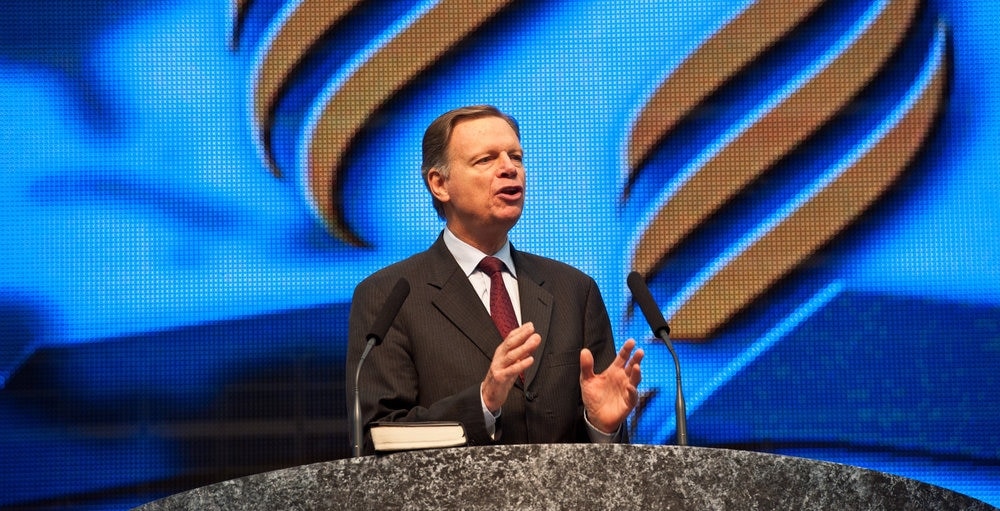
Mark Finley, evangelist and assistant to the General
Conference president, has offered church leaders a five-step plan to tackle the
question of women’s ordination and to unify the Seventh-day Adventist Church
after a final decision is made.
Finley presented the plan last Friday to delegates of the
Annual Council, a major church business meeting that will discuss women’s
ordination on Tuesday. He compiled
the steps while engaged in personal Bible study of how early Christian leaders
resolved difficulties.
Finley, who is also an editor-at-large for the Adventist Review and Adventist World magazines, said he delved
into the book of Acts after hearing presentations on both sides of the ordination
issue from “very honest people who are committed to Christ, committed to the
church, and committed to the authority of Scripture.”
“What do you do when you have people who are committed
Christians on both sides of the question but think differently?” he said in an
interview Sunday.
He said his main hope in sharing his findings was to maintain the unity of the
Adventist Church — regardless of which way the final decision goes.
“Whatever your viewpoint is on the ordination of women,
whether you are convicted on one side of the question or the other, there comes
a point when you do not tear the body of Christ apart,” Finley said, referring
to the church.
He added: “There comes a point where you say, ‘We will
accept the decision of the corporate body, namely the General Conference
session. And whatever my personal view is on that, no matter how I believe I am
right, I have come to the conclusion that I will accept as God’s will whatever
the session votes and move on with our mission.”
This attitude, he said, was adopted by early Christian
leaders as they sought to find a 12th disciple to replace Judas
Iscariot in Acts 1, to end a dispute with widows in Acts 6, and to resolve a
debate over circumcision at the Jerusalem council in Acts 15.
The pattern that Finley found New Testament church leaders
following to resolve difficulties consisted of five steps:
Trust in the final decision reached after an open debate is
important to avoid division, Finley said. He stressed that he was not talking
about blind trust in Adventist Church leadership but in a solid trust built through
a participatory process of free, open discussion. Discussion also can be
beneficial for participants on both sides who might have blind spots, he said.
“But when you have done all that, don’t push your own
opinion and divide the church,” he said. “Once we’ve gone through the process,
move on with the mission.”
The Seventh-day Adventist Church’s mission is “to make
disciples of all people, communicating the everlasting gospel in the context of
the three angels' messages of Revelation 14:6-12, leading them to accept
Jesus as personal Savior and unite with His remnant Church, discipling them to
serve Him as Lord and preparing them for His soon return,” reads the mission
statement on the official church website.
The Annual Council will discuss women’s ordination on
Tuesday and review a two-year study by the Theology of Ordination Study
Committee, which Finley sat on. Then it will decide whether to forward the
matter to the General Conference session for a final vote in July.
Finley advised anyone who ended up believing that the final
decision was not God’s will should move forward with the attitude, “I believe
God is bigger and greater than this and He can facilitate His ultimate
purposes, which are mission and saving the world.”
“Here’s what my point is: God is sovereign. He’s
going to accomplish his ultimate will through the church, and I am comfortable
with that," Finley said. "I can sleep well at night.”
Contact news editor Andrew McChesney at [email protected]. Twitter: @ARMcChesney
Seventh-day Adventist Church mission statement
Adventist Review, Sept, 23, 2014: "Adventists Urged to Study Women’s Ordination for Themselves"